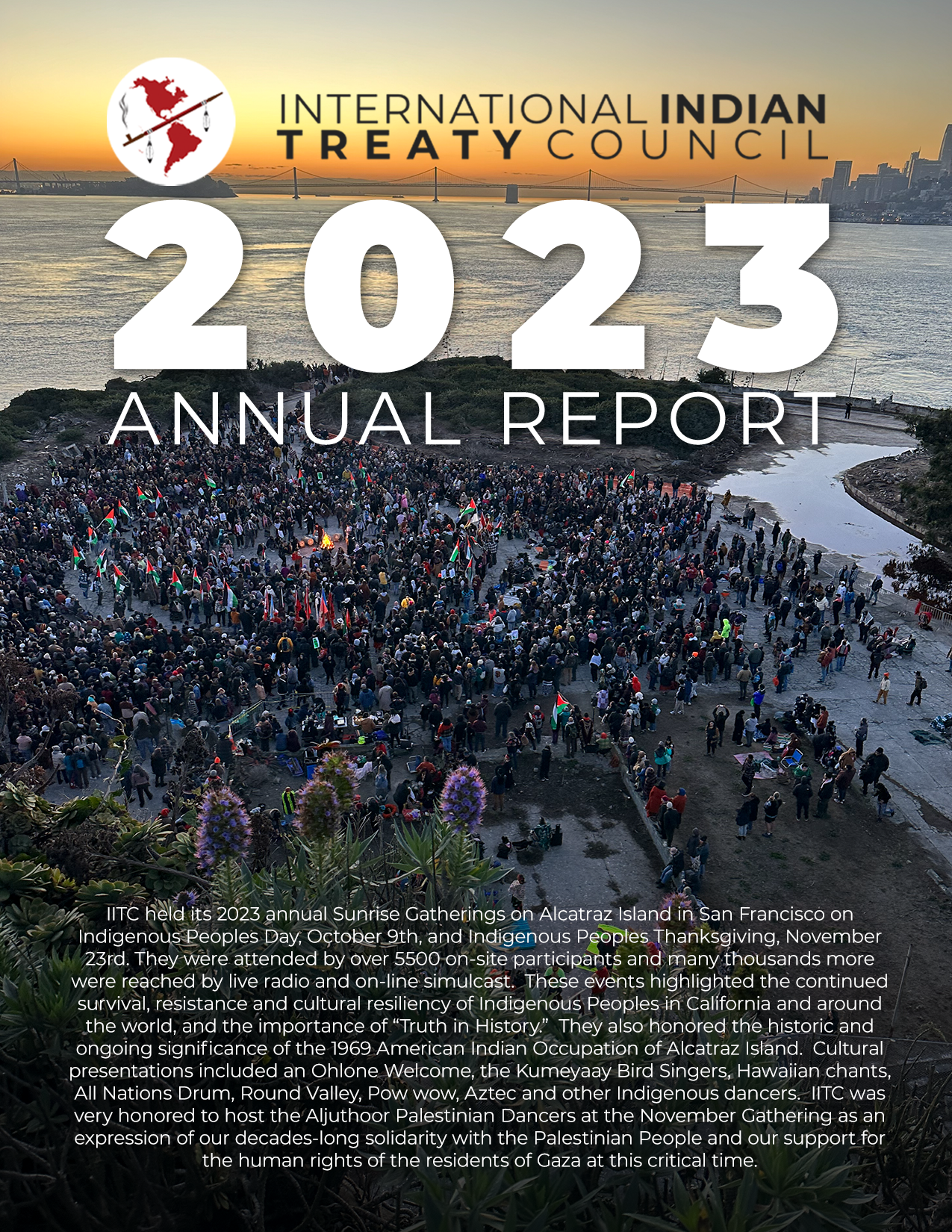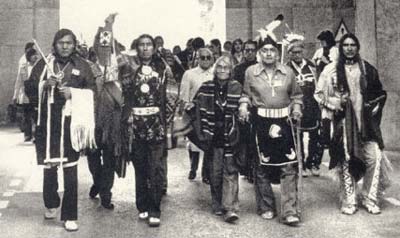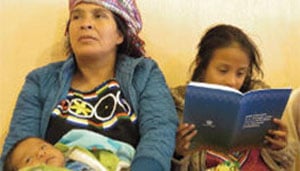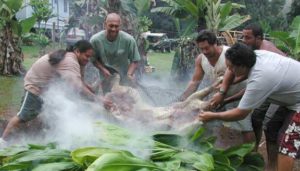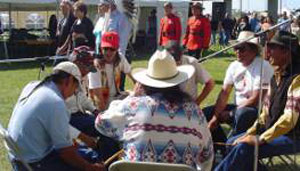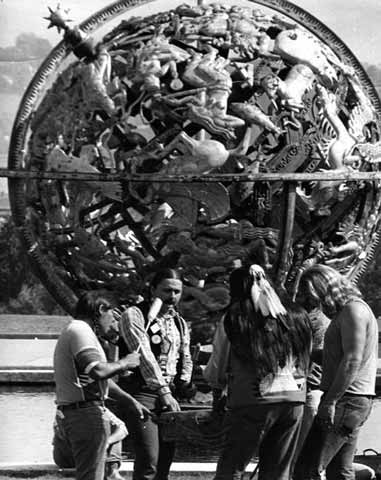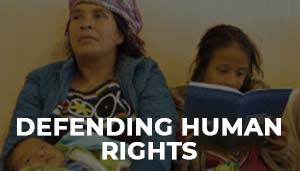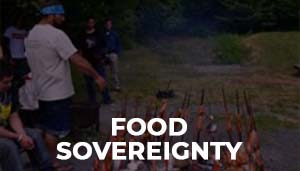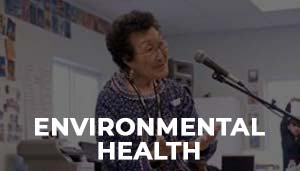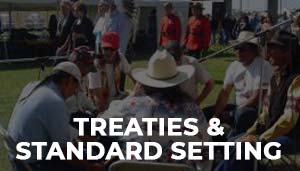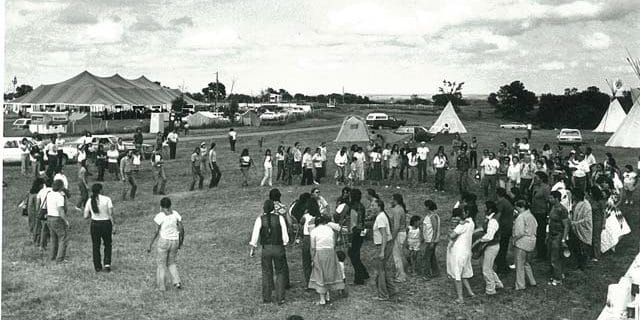The 23rd session of the Conference of the Parties (COP 23) to the UN Convention on Climate Change (UNFCCC) takes place at the headquarters of the UNFCCC Secretariat in Bonn, Germany. Presided over by the Government of Fiji, a primary focus of this COP is to continue to negotiate details regarding the implementation of the Paris Agreement. An expected outcome of this conference is a so-called “Book of Rules” to be approved by the next Climate Change Conference in Poland in late 2018. Indigenous Peoples are in Bonn to advance recognition of their Traditional Knowledge in relation to Climate Change through the establishment of a “Local Communities and Indigenous Peoples Traditional Knowledge Platform” as called for in the Paris Agreement, in Operational Paragraph 135.
Some of the other topics to be discussed include adaptation to the impacts of climate change and resilience against climate change as well as Nationally Determined Contributions (NDCs), Reporting and Review Under the Enhanced Transparency Framework, Global Stocktake, and Implementation and Compliance.
The NDCs are the national climate plans from each nation state, member state, nation on what they are doing to combat climate change in their countries. Enhanced Transparency Framework assess Parties’ (Countries or states) implementation of their pledges and the financial and other forms of support they provide (Article 13). The Global Stocktake is a core element of the Agreement’s ambition mechanism. It is schedule to begin in 2023 and take place every five years for assessing collective progress (Article 14). The negotiators need to make sure that the expert committee established in Paris encourages the highest possible participation and ensures effective implementation of the Agreement.
Indigenous Peoples are calling for the operationalization of the Local Communities and Indigenous Peoples Traditional Knowledge Platform as a decision of this session.
As per the UNFCCC website:
“The Paris Agreement has recognized the need to strengthen knowledge, technology, practises and efforts of local communities and indigenous peoples related to addressing and responding to climate change, and establishes a platform for the exchange of experiences and sharing of best practises on mitigation and adaptation in a holistic and integrated matter.” – Paris Agreement paragraph 135.
Over the weekend of 4-5 November, the Indigenous Peoples Caucus meet in advance of COP23 in Cologne, Germany. The meeting, which was organized by the International Indigenous Peoples Forum on Climate Change. The Caucus was was held at the Cologne City Hall building and the indigenous delegates were welcomed officially by the Mayor of Cologne. The Caucus briefly reviewed business from past meetings and dedicated a significant discussion on the Local Communities and Indigenous Peoples Platform, as well as a general lobbying strategy.
Members of the IPFCC’s technical group were tasked by the Caucus to create working document as a basis for negotiating and other documents and statements from the Caucus over the course of the meeting. The Caucus will meet daily during the conference and delegates will attend the various meetings, as well as hold special events focusing on Indigenous Peoples issues from around the world. A dialogue between Indigenous Peoples, States Parties and the past and present COP Presidencies took place on Sunday, Nov. 5 to provide an opportunity for Indigenous Peoples and the Parties to exchange views on various issues related to the implementation of the Paris Agreement.
Share this post
Update: International Indian Treaty Council at the 23rd session of the Conference of the Parties (COP 23)
The 23rd session of the Conference of the Parties (COP 23) to the UN Convention on Climate Change (UNFCCC) takes place at the headquarters of the UNFCCC Secretariat in Bonn, Germany. Presided over by the Government of Fiji, a primary focus of this COP is to continue to negotiate details regarding the implementation of the Paris Agreement. An expected outcome of this conference is a so-called “Book of Rules” to be approved by the next Climate Change Conference in Poland in late 2018. Indigenous Peoples are in Bonn to advance recognition of their Traditional Knowledge in relation to Climate Change through the establishment of a “Local Communities and Indigenous Peoples Traditional Knowledge Platform” as called for in the Paris Agreement, in Operational Paragraph 135.
Some of the other topics to be discussed include adaptation to the impacts of climate change and resilience against climate change as well as Nationally Determined Contributions (NDCs), Reporting and Review Under the Enhanced Transparency Framework, Global Stocktake, and Implementation and Compliance.
The NDCs are the national climate plans from each nation state, member state, nation on what they are doing to combat climate change in their countries. Enhanced Transparency Framework assess Parties’ (Countries or states) implementation of their pledges and the financial and other forms of support they provide (Article 13). The Global Stocktake is a core element of the Agreement’s ambition mechanism. It is schedule to begin in 2023 and take place every five years for assessing collective progress (Article 14). The negotiators need to make sure that the expert committee established in Paris encourages the highest possible participation and ensures effective implementation of the Agreement.
Indigenous Peoples are calling for the operationalization of the Local Communities and Indigenous Peoples Traditional Knowledge Platform as a decision of this session.
As per the UNFCCC website:
“The Paris Agreement has recognized the need to strengthen knowledge, technology, practises and efforts of local communities and indigenous peoples related to addressing and responding to climate change, and establishes a platform for the exchange of experiences and sharing of best practises on mitigation and adaptation in a holistic and integrated matter.” – Paris Agreement paragraph 135.
Over the weekend of 4-5 November, the Indigenous Peoples Caucus meet in advance of COP23 in Cologne, Germany. The meeting, which was organized by the International Indigenous Peoples Forum on Climate Change. The Caucus was was held at the Cologne City Hall building and the indigenous delegates were welcomed officially by the Mayor of Cologne. The Caucus briefly reviewed business from past meetings and dedicated a significant discussion on the Local Communities and Indigenous Peoples Platform, as well as a general lobbying strategy.
Members of the IPFCC’s technical group were tasked by the Caucus to create working document as a basis for negotiating and other documents and statements from the Caucus over the course of the meeting. The Caucus will meet daily during the conference and delegates will attend the various meetings, as well as hold special events focusing on Indigenous Peoples issues from around the world. A dialogue between Indigenous Peoples, States Parties and the past and present COP Presidencies took place on Sunday, Nov. 5 to provide an opportunity for Indigenous Peoples and the Parties to exchange views on various issues related to the implementation of the Paris Agreement.
